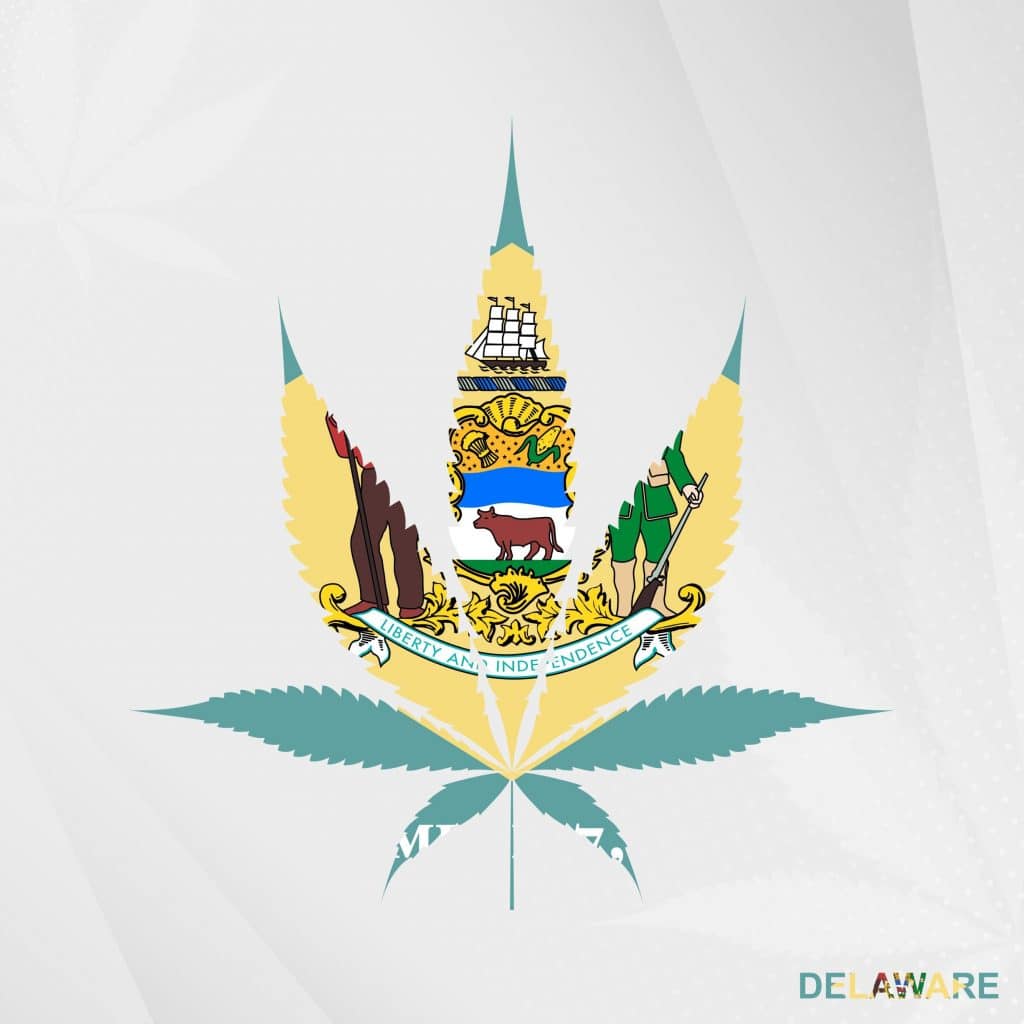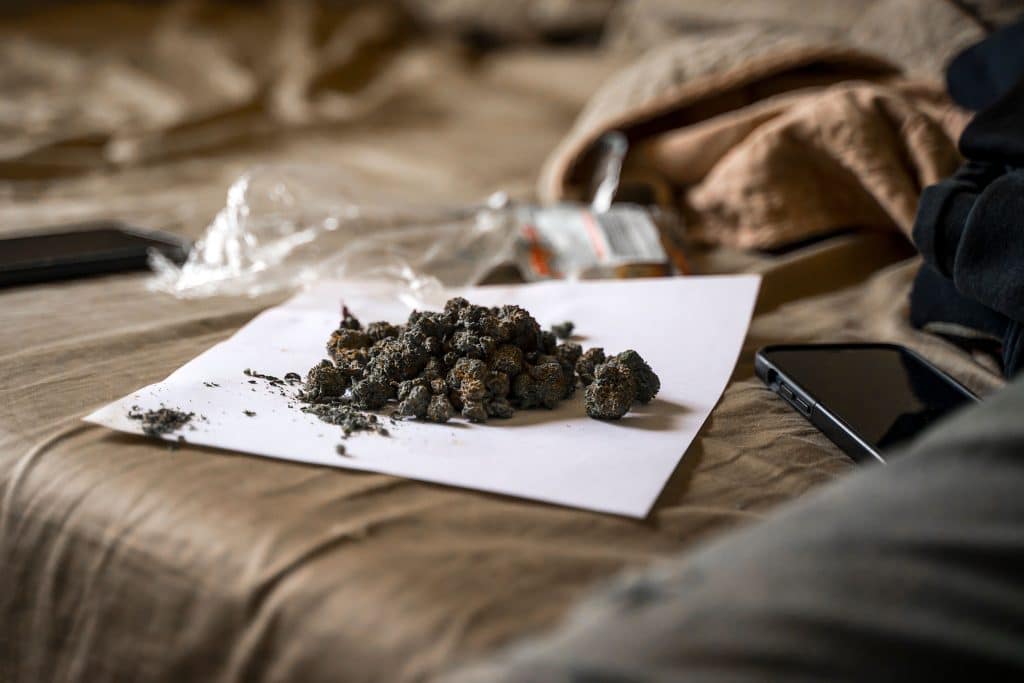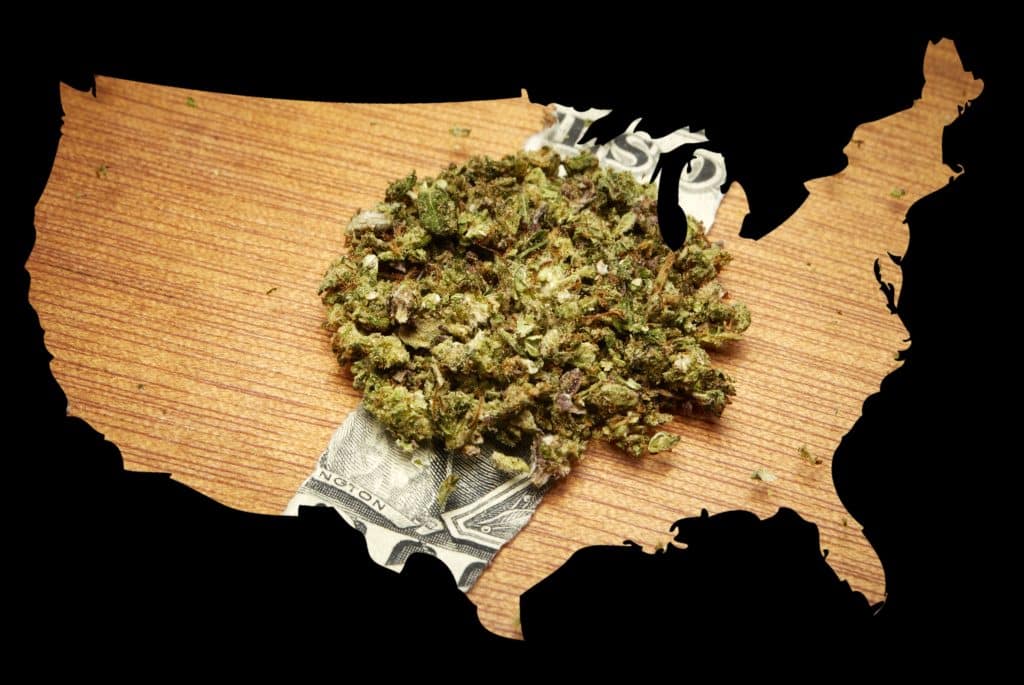Some states get a lot of attention when they pass marijuana legalization bills, and some go more under the radar. The latter is the case with Delaware, which quietly passed a recreational bill last month. Read on for details.
Delaware recreational cannabis legalization
Delaware is a pretty small state, which might explain why its recreational cannabis legalization happened rather quietly. Regardless of size, however, Delaware just joined the ranks of the legal states in America. With this passage, Delaware is the 22nd state (plus DC) to pass a recreational legalization. And the 23rd state to have some kind of measure for recreational use, when accounting for Minnesota.
The whole thing happened pretty quickly. On January 20th, 2023, two bills were introduced at the same time in the House of Representatives: HB1 and HB2. The former is a direct legalization bill, while the latter institutes regulation, including tax rates. They were approved within two days of each other in the House, first HB1 on March 7th, and HB2 on March 9th. The legalization bill passed with a vote of 28-13, and the regulation bill 27-13.
On March 28th, the bills both passed the Senate in the state, with the legalization bill getting a vote of 16-4, and the regulation bill getting 15-5. From there they were sent to Governor John Carney’s desk on April 11th and 14th respectively. Carney stated on April 21st that both laws would pass through without his signature or veto. This is because Carney himself doesn’t technically support a legalization, but also knows that it must happen. On April 23rd, the legalization went into effect.

Previous attempts
Delaware did attempt legalization bills before, but to no avail. One was in 2017, but it could not gain enough votes. Another was put forth in 2020, but also failed to get enough votes. This was at the height of Corona, and the bill’s writer, Rep. Ed Osienski, reworked it and resubmit it in 2021.
Then in May 2022, the state’s General Assembly did actually pass a legalization bill on May 24th of that year. Carney vetoed the bill, and the House could not override it. This helps explain why Carney allowed the new bill to pass without his signature. It perhaps says a huge amount about the times we’re in, that the governor disagreed with a law, but let it pass through anyway.
In his statement, he said: “I want to be clear that my views on this issue have not changed. And I understand there are those who share my views who will be disappointed in my decision not to veto this legislation. I came to this decision because I believe we’ve spent far too much time focused on this issue, when Delawareans face more serious and pressing concerns every day. It’s time to move on.”
He went on, “I remain concerned about the consequences of a recreational marijuana industry in our state. I’m concerned especially about the potential effects on Delaware’s children, on the safety of our roadways, and on our poorest neighborhoods, where I believe a legal marijuana industry will have a disproportionately negative impact. Those concerns are why I could not put my signature to either House Bill 1 or House Bill 2.”
What does the Delaware recreational legalization allow for?
Every legalization measure is different, and they all come with their own specifics for legal allowance, regulatory measures, and instituted taxes. Here’s a look at what is now allowed in Delaware via its recreational legalization last month.
The adults of Delaware (21 and up) can now posses up to an ounce of flower, or 12 grams of concentrate. They can also possess packaged cannabis products with up to 750mg of THC max. If a person is caught with more than these amounts, or uses cannabis in public, its a crime. The bill does not come with an allowance for personal cultivation.

In terms of regulation, the bill requires that officials approve a max of 30 licenses for retail locations in the state, 30 licenses for manufacture, another 60 for production, and five more for testing. It does include provisions for social equity which come with special licenses. Microbusinesses also can receive special licenses. These licenses will not be given out until August 2024 at earliest.
Following along with other states which have instituted high taxes on cannabis, this legalization comes with an automatic 15% sales tax. 7% of that goes to the Justice Reinvestment Fund, meant to help areas hit hardest by the war on drugs.
The new law doesn’t do anything to ease employer enforcement of cannabis policies, and allows the continued testing for marijuana in zero-tolerance situations. Employers can prohibit employees from using at work, and give punishments if workers are high at work. This is not specific to any particular industry, meaning all workplaces have this ability.
Prior to this measure, Delaware did pass a medical legalization in 2011, signed by Governor Jack Markell. It allows adult patients of 18 or above to have up to six ounces of cannabis for medical use. Cleared uses include: cancer, PTSD, Alzheimer’s, seizure disorders, and intractable nausea. In 2015, Markell also signed a decriminalization bill. This made up to an ounce a civil infraction with a $100 fine. The decriminalization became official in December 2015. Under the new law, the same civil infraction applies to possession of amounts greater than the legal limit.
Other recent legalizations
Delaware passed its new recreational cannabis law by way of its legislature, but many legalizations come by voter ballot, including the two previous to Delaware. In last fall’s midterm elections, both Missouri and Maryland passed such measures. Whereas Missouri passed its measure with about 53.1% of the vote, Maryland passed with a huge 67.2% of the vote. Three states had ballot measures which did not pass: South Dakota, North Dakota, and Arkansas. Oklahoma was supposed to have a ballot measure, but did not in the end. This was blamed on technical errors unrelated to signature collection or verification.
Prior to the elections, another semi-legalization happened in 2022 with Minnesota. Minnesota did not pass a standard measure in its congress, nor did it pass a ballot measure among its people. And its legalization is slightly different. In May of last year, the state passed a hemp reform bill, which included the legal use of hemp-derived THC for food and beverage products. As per the law, products can have up to 5mg of THC in a serving, and 50mg per package; all relevant to adults 21 and above.

With Delaware included, 22 states are legal for recreational use: Alaska, Arizona, California, Colorado, Connecticut, Delaware, Illinois, Maine, Maryland, Massachusetts, Michigan, Missouri, Montana, Nevada, New Jersey, New Mexico, New York, Oregon, Rhode Island, Vermont, Virginia, and Washington. Added onto this are Washington DC, and the territories: the Mariana Islands, and Guam.
Then, of course, Minnesota, with its partial legalization. And one other state that did actually vote in a measure – South Dakota. That legalization was repealed by the state’s governor, and a subsequent ballot measure last year turned up a lesser result for legalization, which did not pass. This begs the question of whether there was further corruption on that front, as the initial ballot did pass. We don’t have an answer for that. What this does mean, is that technically 23 states have passed legalization measures, even if one was taken away.
Conclusion
Delaware and its recreational legalization, are a great example of how things can change, even when politicians aren’t actually for it. Despite the governor repeatedly causing problems on the marijuana front previously, the general turning of tides dictated that he’d have to let the legalization pass, even without agreeing. We will probably see more of this coming up.
Hello readers. We’re happy to have you with us at Cannadelics.com; a news source here to bring you the best in independent reporting for the growing cannabis and hallucinogen fields. Join us frequently to stay on top of everything, and subscribe to our Cannadelics Weekly Newsletter, for updates straight to your email. Check out some awesome promos for cannabis buds, smoking devices and equipment like vapes, edibles, cannabinoid compounds, amanita mushroom products, and a whole bunch more. Let’s all get stoned together!
